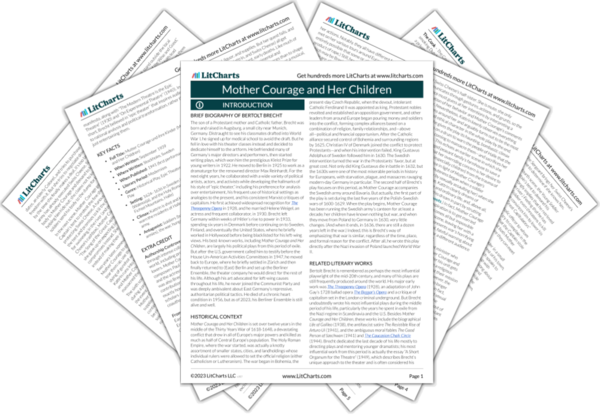The play ends as it began, with “The Song of Mother Courage.” It may have seemed quaint and optimistic at the beginning, particularly to audiences who didn’t know what to expect of the play or didn’t listen particularly closely to its lyrics. But now, it’s all but impossible to misinterpret it in the same way. It’s a cross between a battle hymn and a funeral march, and it makes it clear that Mother Courage has also suffered greatly from her involvement in the war. Like Kattrin’s drum, the beat of this song is a dire warning to the people of Europe about precisely what lies in store for them over the next few years.
